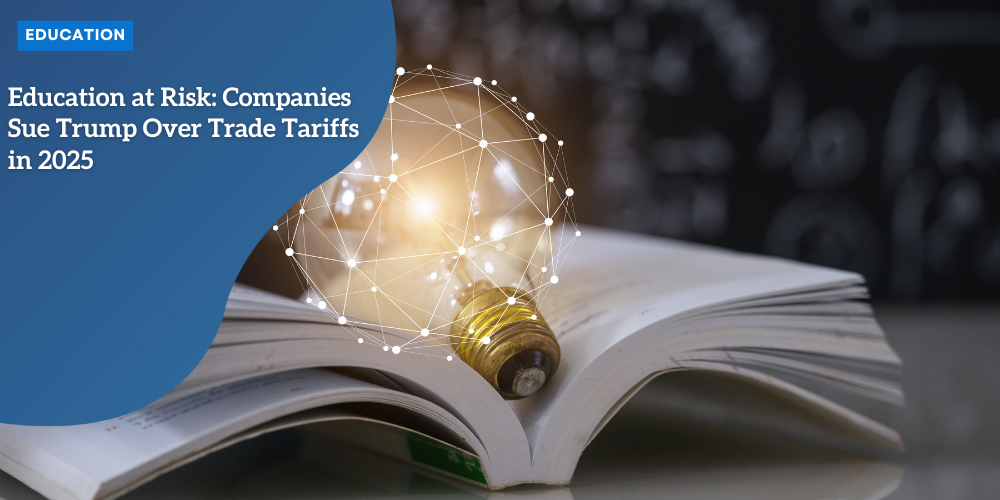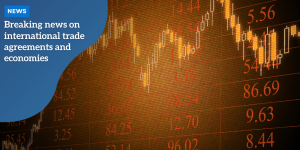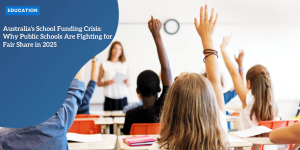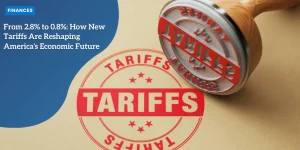Education at Risk: Companies Sue Trump Over Trade Tariffs in 2025

Anúncios
Educational Companies Locked in Legal Battle Against Trump’s Tariffs: What’s at Stake
Two U.S.-based educational companies, Hand2mind and Learning Resources, are embroiled in a legal battle against the Trump administration, claiming that tariffs on imports threaten the sustainability of their businesses
. In an increasingly volatile political and economic environment, these companies argue that the White House’s actions directly threaten access to quality education in U.S. public schools.
This legal dispute could have far-reaching implications, not just for the companies involved, but also for the entire education sector.
The Origin of the Legal Dispute
The lawsuit was filed in April 2025, following escalating trade tensions between the United States and China that resulted in tariffs of up to 125% on imports.
Anúncios
Both companies, which produce educational toys and hands-on learning tools for K-12 education, argue that the new tariffs have significantly raised their production costs, jeopardizing their ability to provide affordable educational resources.
The core of the legal challenge lies in the use of the International Emergency Economic Powers Act (IEEPA) by former President Trump.
The administration’s interpretation allowed tariffs to be imposed, suspended, and reinstated unilaterally, without Congressional oversight, raising concerns about the constitutional boundaries of executive power.
Initial Victory in Federal Court
U.S. District Judge Rudolph Contreras issued a favorable ruling for the companies in late May 2025.
The ruling highlighted that the administration’s use of the IEEPA exceeded constitutional limits, granting the companies a temporary victory.
Anúncios
Nevertheless, Trump’s legal team immediately appealed.
During a briefing, White House Press Secretary Karoline Leavitt described the decision as “ridiculous,” echoing similar criticism of other challenges to executive orders.
The case could set an important precedent for future executive power cases.
Immediate Impact on Educational Companies
Hand2mind’s Vice President of Marketing and Product Development, Elana Ruffman, stated in an interview with EdWeek Market Brief that the impact of the tariffs is profound.
According to her, the cost increases would force a price hike of at least 70%.
Such a change would make quality materials unaffordable for many schools, especially those with shrinking budgets, potentially diminishing the quality of education offered in public schools.
“It’s not feasible to charge 24 times more for a product just to cover production costs.
That’s unethical and unsustainable,” Ruffman said.
In 2025, the two companies have already accumulated nearly $5 million in tariffs, more than double the amount they paid the previous year.
This financial strain has forced the companies to explore difficult options for keeping their businesses afloat while maintaining their commitments to educational institutions.

Tariffs and the Supply Chain in Education
The imposition of tariffs on physical products has significant implications for suppliers of educational materials, textbooks, and equipment.
Unlike digital sectors, companies offering physical products face complex logistical challenges and high operational costs, which are often passed on to consumers.
Many school districts report growing concerns about tight budgets and prioritization of spending on infrastructure, maintenance, and utilities.
Two surveys conducted by the EdWeek Research Center found that 64% of K-12 district leaders indicated that the tariffs would negatively affect their finances.
Among private-sector professionals, 61% expect their revenues to decline due to the trade levies, a worrying sign for the future of educational resource companies.
Staff Redirection and Operational Changes
At Hand2mind, approximately 30% of the staff has been reassigned to manage the regulatory changes.
The company, which has been family-owned for four generations, is currently redesigning its supply chain to maintain its contracts with school districts and ensure continuity in its operations.
However, as Ruffman explained, the process is costly and technically challenging.
The need for small-batch, high-quality production severely limits viable alternatives.
In one instance, the company considered moving production of its pattern blocks product to the U.S. using 3D printing, but the quotes came in 24 times higher than producing it overseas.
Digitalization Is Not a Solution for Everyone
Despite the growing trend of digitalizing education, Hand2mind does not intend to replace its physical products.
According to Ruffman, hands-on learning is essential, especially for children in early stages of development, who benefit significantly from physical, tactile learning experiences.
Digital tools can complement traditional learning, but they cannot replace the necessity of physical engagement in a child’s development.
The Future of Educational Trade Policy
Even with a favorable court ruling, the risk is not over.
Other statutes still allow the Executive Branch to impose tariffs, provided that specific legal processes are followed.
While these procedures may be bureaucratically cumbersome, they would offer greater predictability to the sector and give companies time to adjust.
The concern is that new emergency measures could again hit sensitive sectors like education without proper notice or planning, exacerbating the financial strain on educational companies and school districts alike.
The broader impact on the educational ecosystem could have lasting consequences, potentially reducing access to vital learning tools for years to come.
National Debate and Political Repercussions
The case adds to a broader trend of lawsuits challenging Trump administration decrees and policies across various sectors.
Last week, the administration filed an emergency request with the court to block a lawsuit challenging layoffs at the U.S. Department of Education.
Legal and economic analysts are closely monitoring developments, as judicial decisions could set precedents for the future use of the IEEPA and other emergency powers.
These cases highlight the tension between executive authority and the need for checks and balances in U.S. governance, with implications for all industries affected by trade policies.
| Event | Before | After (2025 Event) |
|---|---|---|
| 🎓 Forum Focus | Sector-wide discussions with limited focus | Focused discussions addressing current challenges, sustainable partnerships, and expert analysis |
| 🌐 Participants | General market players and suppliers | Sector experts, district leaders, and market analysts sharing key insights |
| 🗓 Event Dates | Ad-hoc gatherings or undefined dates | Scheduled virtual forum on June 10-11, 2025, with structured sessions |
| 📊 Forum Goals | General networking and broad discussions | Address current challenges, explore new market opportunities, and ensure sustainable future partnerships |
| 📝 Registration | Registration for limited events | Open registration via the event’s official website for full participation |
Conclusion: Education as a Collateral Victim of the Trade War
The legal battle between Hand2mind, Learning Resources, and the Trump administration symbolizes the silent but deep impact of trade policies on basic education in the United States.
While the aim is to protect the U.S. economy, essential tools for millions of children’s learning are at risk.
At the heart of the discussion is the right to accessible, quality education.
The upcoming judicial decisions and the government’s stance on trade tariffs will determine whether this right is preserved or compromised in the name of geopolitical disputes.
The future of educational resources and learning tools depends on the outcome of these crucial legal battles.






